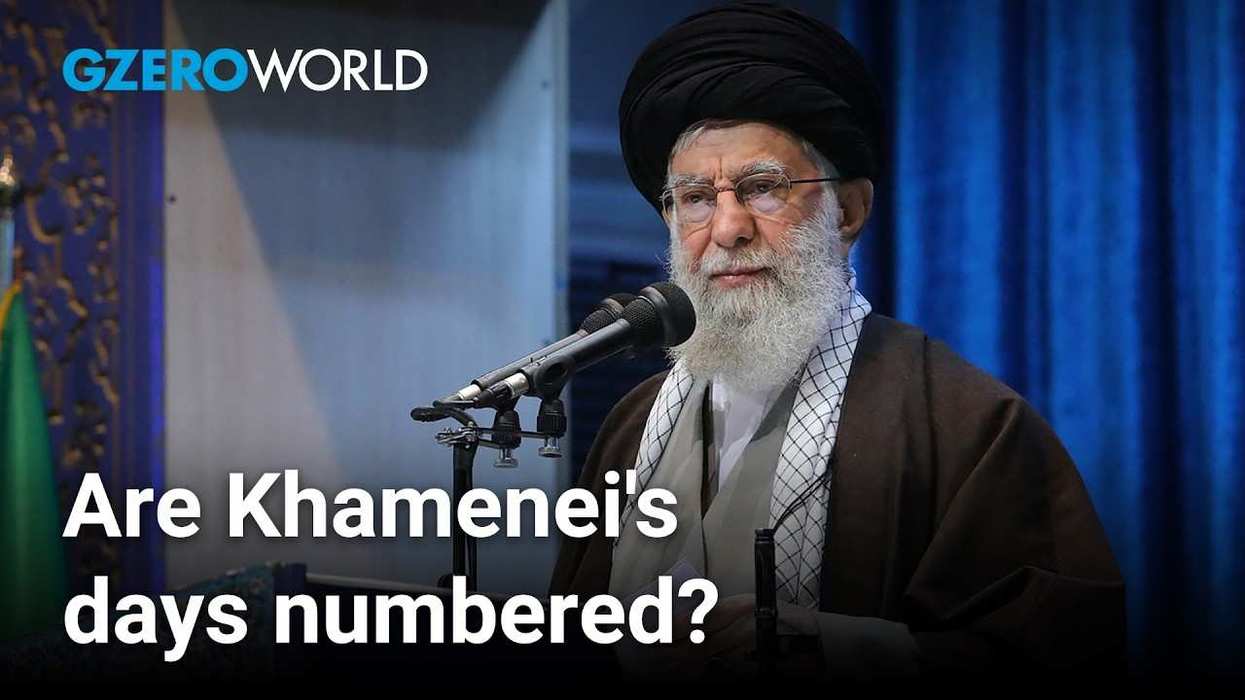The US and Israel struck several sites in coordinated attacks across Iran this morning. The total number of casualties across Iran is also unknown, though one of the missiles hit a girls’ school in Iran, reportedly killing 53 people. The country is under a near-total internet blackout.
In response, Tehran has launched airstrikes at Israel, as well as US bases throughout the region, including in Bahrain, Kuwait, Qatar, and the United Arab Emirates. Though many of the strikes have been intercepted, shrapnel has caused some damage. One Iranian missile that was likely intended to hit Israel landed instead in Syria, killing four.
Ian Bremmer gives his analysis of the situation, which he calls a “war of regime change.” The United States is “a uniquely powerful global actor militarily, and now has a president who feels pretty unconstrained in using that military directly for political outcomes of his choosing,” Ian explains. “That clearly can cause a lot of disruption.”
What happens next? The fighting could escalate into a larger conflict. The US and Israel are reportedly planning several days of intensive strikes, with the Israeli Defense Forces calling up 70,000 reservists. There are also questions now as to whether Iran’s retaliatory strikes on US bases in several Middle East states prompt more countries to get involved.
But the most pressing question at this time is about Supreme Leader Ali Khamenei. As of the moment of this publication, his whereabouts and condition are unknown following the strike on his compound. Iran’s foreign minister said Khamenei is alive “as far as I know,” but there are reports that several senior regime leaders have been killed. In a video posted on social media on Saturday, US President Donald Trump urged Iranian citizens to topple the regime.
“When we are finished, take over your government,” Trump said. “This will be, probably, your only chance for generations.”
The United Nations Security Council is set to hold an emergency session at 4 pm ET today, after requests from Iran, Bahrain, France, and other countries. Iran’s foreign minister argued that the United States had violated international law in attacking Iran.
What happens if Khamenei is killed? The death of the 86-year-old would be a huge shock to the country’s political system, Eurasia Group’s Iran expert Greg Brew told us earlier this month. However, it wouldn’t necessarily lead to a long-term shift in the regime.
“Overall, however, it may not change much – at least not at first,” said Brew. “The rest of the leadership would manage a transition to a new supreme leader, and much of the Islamic Republic would probably continue to function as it has done for years. In the medium-term, however, Khamenei’s disappearance would trigger changes within the system, as the military and Islamic Revolutionary Guard Corps assume more power over decision-making while the clerics – including Khamenei’s replacement – take a back seat.”
Reza Pahlavi, the exiled son of the former Iranian shah, has been saying for months that the Iranian people want him to return to the country and lead it. Whether this is a realistic option is unclear.
Back up: Why is Trump doing this? In his video, Trump described Iran, as well as its Middle East proxies, as a major threat to the United States, saying they are the “number one state sponsor of terror.” He reiterated that he cannot let the Islamic Republic have a nuclear weapon. The US leader added that he was heeding calls from the Iranian people who wanted to see Khamenei’s regime fall.
Trump, who had been threatening strikes against Iran since and rapidly expanding the US military presence in the region, may also be seizing an opportune moment to destroy one of the US’s greatest foes. The Islamic Republic is weaker than ever: its economy has been decimated by sanctions and mismanagement, its air defenses have been depleted from last summer’s 12-day war with Israel and the US, its own people have been in open revolt against the regime, and its regional proxies – such as Hamas and Hezbollah – are battered and bruised.
One concern for Trump is whether these strikes will repel the isolationist portion of the MAGA coalition. The US president acknowledged that “the lives of courageous American heroes may be lost,” but tried to mollify any potential opposition by saying, “We’re doing this not for now, we’re doing this for the future.” Nonetheless, opposition is already emerging: Sen. Rand Paul, a Republican from Kentucky, criticized this morning’s strikes, saying Trump didn’t have the approval from Congress needed to initiate a war.
What’s the reaction been in the Middle East? Several US allies in the Gulf, including Saudi Arabia, Qatar, and Oman, had been urging Washington not to strike Iran, fearful that it would spark a regional war. Tehran’s reserves of close-range ballistic missiles, which cannot reach Israel but can get to the US bases in the Gulf, add another layer of concern for countries in the region.
After the Islamic Republic fired at some of those bases today, there are questions over whether those countries will now get involved in this conflict. Thus far, the focus of these Gulf states has been on shooting down missiles fired in their direction, rather than in any offensive moves.






